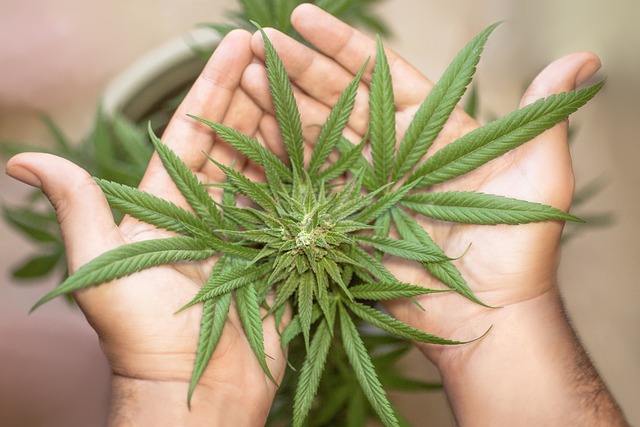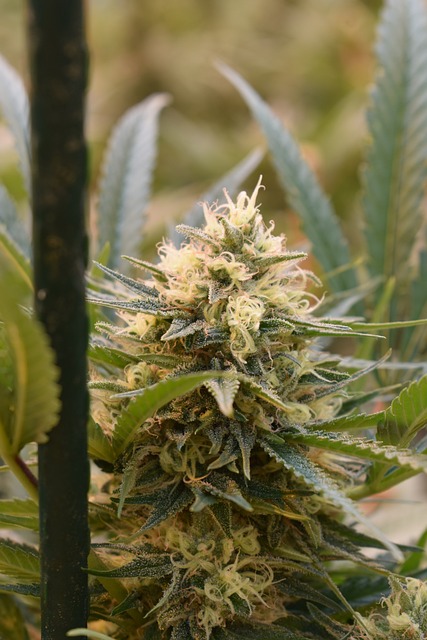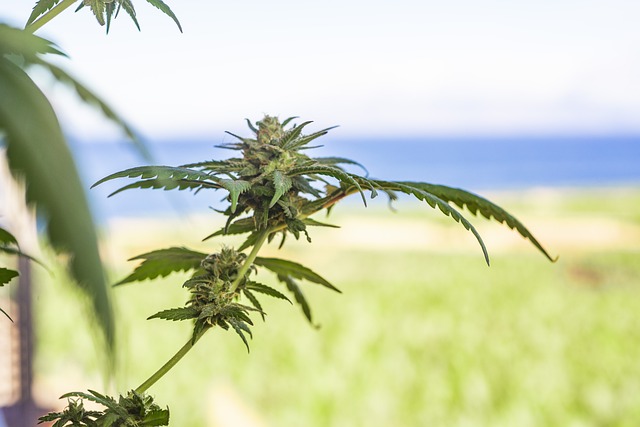THCA (Tetrahydrocannabinolic Acid), a non-psychoactive cannabinoid, has emerged as a significant player in Maine's cannabis market following legislative changes that have broadened the scope of legal cannabis products. With its therapeutic benefits and natural presence in cannabis plants, THCA is gaining traction among consumers who prefer its health advantages without psychoactive side effects. In Maine, THCA can be consumed through various methods like smoking, vaporizing, or edibles, catering to a range of preferences. The state's clear legal stance on THCA has led to increased popularity, with anecdotal evidence pointing to its potential for pain management and anti-inflammatory effects. The 2018 Farm Bill allowed THCA-rich hemp products into the market, provided they contain less than 0.3% delta-9-THC by dry weight. As research progresses, it's shedding light on THCA's unique chemical properties and health benefits, particularly within Maine's expanding legal hemp sector, where both consumers and researchers are actively investigating its distinct advantages over THC-dominant products. The evolving legal framework around THCA underscores the importance of understanding its potential effects as a therapeutic option.
Explore the multifaceted world of THCA flower, a non-psychoactive cannabinoid that’s garnering attention for its potential therapeutic benefits and unique legal status in Maine. This comprehensive article dissects the chemistry, effects, and laws surrounding THCA, providing insights into its rising popularity and how to engage with it responsibly. From understanding the differences between THCA and THC to navigating Maine’s specific regulations, this guide aims to clarify the nuances of THCA legal standing and its burgeoning role in the state’s cannabis industry. Join us as we delve into the various aspects of THCA flower, from cultivation and consumption to its impact on health and economic growth within Maine’s borders.
THCA Flower: An Overview of Its Rising Popularity

The non-psychoactive compound THCA (Tetrahydrocannabinolic Acid) has garnered significant attention within the cannabis community, particularly as its legal status in certain regions becomes more clarified. In Maine, where legislation has evolved to permit a broader range of cannabis products, THCA flower has emerged as a popular choice among consumers. Unlike its psychoactive counterpart THC (Tetrahydrocannabinol), THCA exists in its natural raw form within the cannabis plant and is known for its potential therapeutic benefits without the intoxicating effects. This has made it particularly appealing to those seeking the medicinal properties of cannabis without the “high” associated with THC. The rise in popularity of THCA flower can be attributed to its versatility; it can be consumed in various ways, including smoking, vaporizing, and infusing into edibles, offering a wide array of options for consumers. Additionally, the interest in THCA has been fueled by anecdotal reports suggesting its potential benefits in managing pain, reducing inflammation, and offering neuroprotective effects. As such, the legal clarity in Maine has paved the way for a new frontier in cannabis consumption, with THCA flower at the forefront of this green wave. Consumers in Maine are increasingly exploring this cannabinoid, curious about its unique properties and the role it may play in wellness routines.
The Chemistry Behind THCA: What You Need to Know

delta-9-tetrahydrocannabinolic acid (THCA) is the non-psychoactive precursor to the well-known compound delta-9-tetrahydrocannabinol (THC), which is the primary psychoactive element in cannabis. THCA is found in raw or uncured cannabis flowers and possesses a distinct chemical structure that offers unique properties. As of the current legal status, THCA-rich hemp products are legal in Maine under the 2018 Farm Bill, provided they contain less than 0.3% delta-9-THC by dry weight.
The chemistry behind THCA is intricate and involves a complex network of cannabinoids, terpenes, and flavonoids that all contribute to the plant’s effects. THCA interacts with the body’s endocannabinoid system through its affinity for cannabinoid receptors like CB1 and CB2, influencing various physiological processes. Studies suggest that THCA may possess anti-inflammatory, neuroprotective, and analgesic properties, though more research is needed to fully understand its potential benefits. The presence of THCA in Maine’s legal hemp market has sparked interest among consumers and researchers alike, as it offers a legal alternative with a potentially different therapeutic profile compared to THC-dominant products. Understanding the nuances of THCA’s chemistry is crucial for those looking to explore its potential effects, especially within the context of Maine’s evolving legal landscape.
2023 has seen a significant surge in interest towards THCA flower, with its potential benefits and unique characteristics captivating consumers across various regions, including Maine where it’s been deemed legal. As our exploration of the chemistry behind THCA reveals, this cannabinoid holds promise due to its non-psychoactive nature and the myriad wellness applications it presents. The rising popularity of THCA flower underscores a broader shift in consumer preferences towards more nuanced and health-focused cannabis products. As legal frameworks evolve, it’s clear that THCA will continue to be a topic of great interest, reflecting the dynamic landscape of cannabis research and acceptance.
